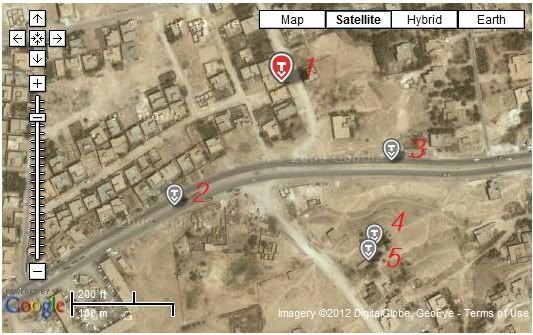Did you know that the "white taxi" was NOT a taxi and one of the dead had a map and 2.000 USD?
it was filmed by a Scan Eagle
The IED was a propane tank that was remotely detonated, which means that it was observed. There weren't many places from where you could safely do that. Possibly from the car or the houses.
The corpses were examined by a nurse and not a doctor. NCI men asked to dig up a corps to investigate but were not allowed to by the family members.
3 AK-47 were confiscated (one a couple of days later given by the owner to Marines).
The bodies were moved (by family members) before pictures were taken. NCI men could find out where they were killed trough DNA.
There were more attacks in Haditha at the same time.
Bargewell Report pdf, June 15, 2006.
There are lots of conflicting reports. Only 1 survived the killings (Safah Yunis Salim Rasif) who said the marine who shot was smaller than herself. (she did not play dead but hid under the bed). In the other houses, no witnesses except the marines.
So, to prosecute them you have not enough evidence (they were not allowed to dig up a corps).
Did marines killed them? yes
On purpose? No
One witness in one room who could not identify the killer and the testimonials of the marines.
First, the footage of the white sedan clearly shows that the vehicle was not a "taxi." It did not display the required placards and in light of what is now known about the occupants, the vehicle was never intbended to act as a taxi.
it was filmed by a Scan Eagle
The IED was a propane tank that was remotely detonated, which means that it was observed. There weren't many places from where you could safely do that. Possibly from the car or the houses.
The corpses were examined by a nurse and not a doctor. NCI men asked to dig up a corps to investigate but were not allowed to by the family members.
3 AK-47 were confiscated (one a couple of days later given by the owner to Marines).
The bodies were moved (by family members) before pictures were taken. NCI men could find out where they were killed trough DNA.
There were more attacks in Haditha at the same time.
Bargewell Report pdf, June 15, 2006.
There are lots of conflicting reports. Only 1 survived the killings (Safah Yunis Salim Rasif) who said the marine who shot was smaller than herself. (she did not play dead but hid under the bed). In the other houses, no witnesses except the marines.
So, to prosecute them you have not enough evidence (they were not allowed to dig up a corps).
Did marines killed them? yes
On purpose? No
One witness in one room who could not identify the killer and the testimonials of the marines.





